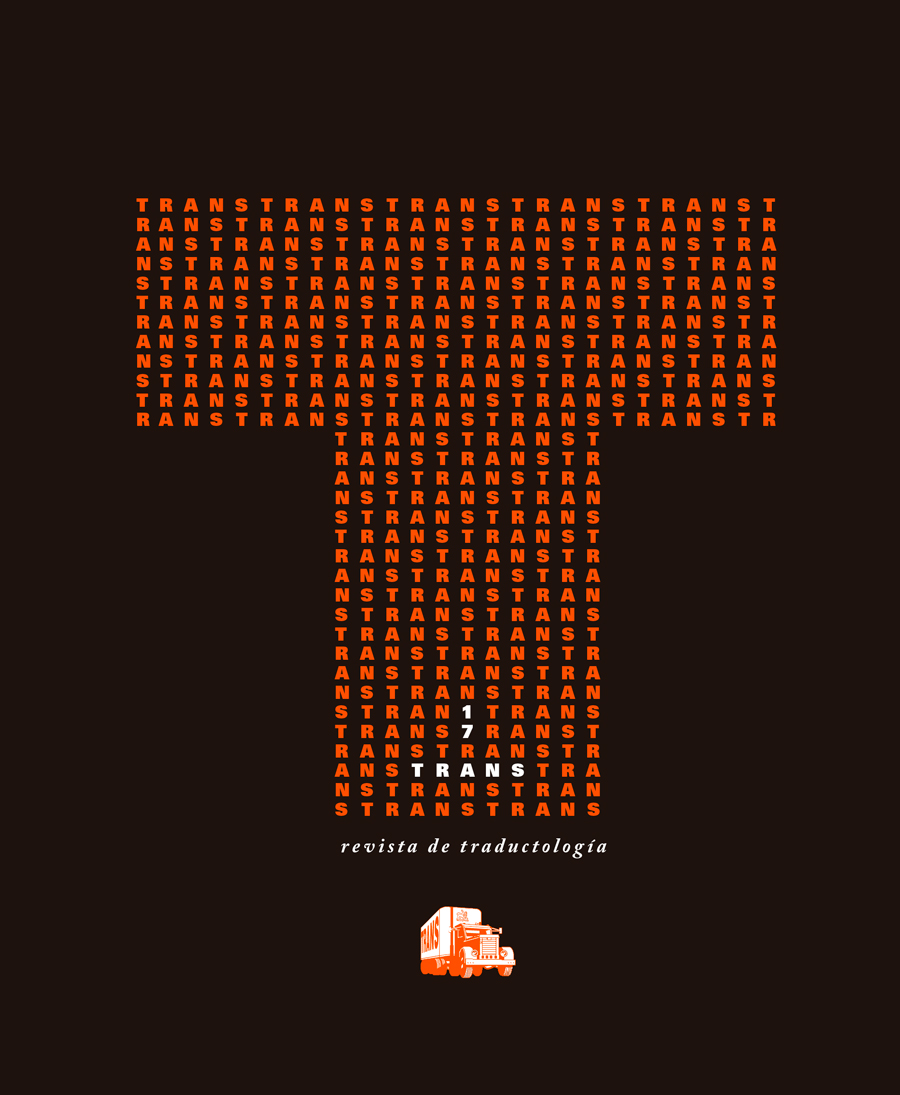Professional Norms for Dubbing in Spain
DOI:
https://doi.org/10.24310/TRANS.2013.v0i17.3226Keywords:
dubbing, conventions, matricial norms, take, dubbing symbolsAbstract
To date, few academic studies about the dubbing industry have been conducted and no quality standards have ever been set. As a consequence, translation for dubbing in Spain lacks a set of professional norms. Although Spanish dubbing studios share some common conventions, there is no uniformity in the use of parameters such as dubbing symbols or the number of lines a take must have. Instead, each dubbing studio applies its own rules according to its habits and needs. The research group trama (Translation and Communication in Audiovisual Media) from the Universitat Jaume I of Castelló, has conducted an empirical and descriptive study, financed by the former Ministry of Education, with the aim of producing a map of the professional norms for dubbing in Spain. This article sets out to describe this study and to analyse the data gathered from a professional perspective. A discussion will follow, highlighting the relevance of this cartography of norms for the profession and for the training of translators-adapters in SpainDownloads
Metrics
Publication Facts
Reviewer profiles N/A
Author statements
Indexed in
-
—
- Academic society
- N/A
- Publisher
- Universidad de Málaga
Downloads
Published
How to Cite
Issue
Section
License
All contents published in TRANS. Revista de Traductología are protected under the Creative Commons Attribution-NonCommercial-ShareAlike 4.0 International (CC BY-NC-SA 4.0) license. All about this license is available in the following link: <http://creativecommons.org/licenses/by-nc-sa/4.0>
Users can copy, use, redistribute, share and exhibit publicly as long as:
- The original source and authorship of the material are cited (Journal, Publisher and URL of the work).
- It is not used for comercial purposes.
- The existence of the license and its especifications are mentioned.
- ShareAlike — If you remix, transform, or build upon the material, you must distribute your contributions under the same license as the original.
There are two sets of authors’ rights: moral and property rights. Moral rights are perpetual prerogatives, unrenounceable, not-transferable, unalienable, imprescriptible and inembargable. According to authors’ rights legislation, TRANS. Revista de Traductología recognizes and respects authors moral rights, as well as the ownership of property rights, which will be transferred to University of Malaga in open access.
The property rights are referred to the benefits that are gained by the use or the dissemination of works. TRANS. Revista de Traductología is published in an open access form and it is exclusively licenced by any means for doing or authorising distribution, dissemination, reproduction, , adaptation, translation or arrangement of works.
Authors are responsable for obtaining the necessary permission to use copyrighted images.













21.png)
